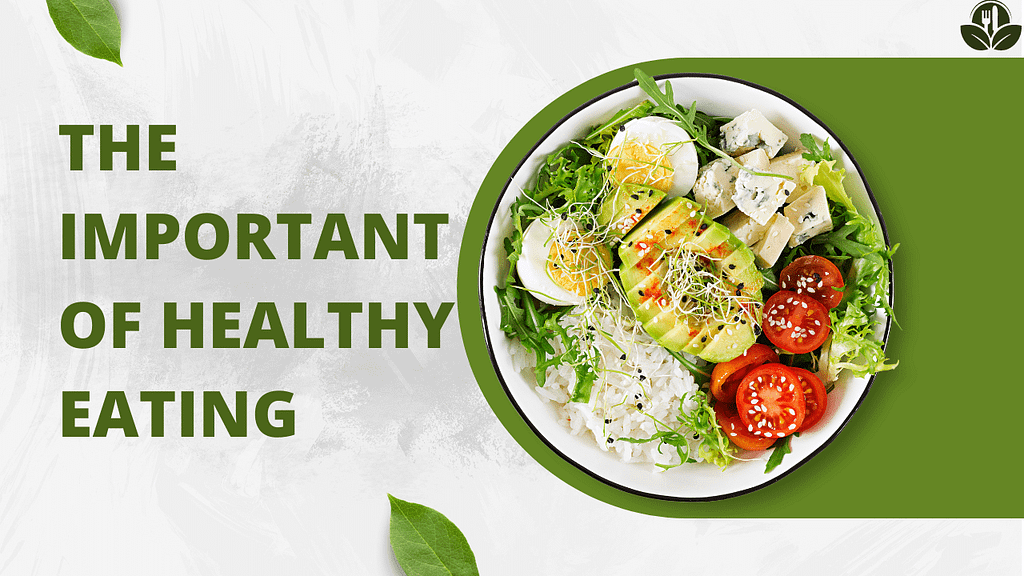
In a society where convenience frequently takes precedence over nutrition, it’s critical to acknowledge the significant influence that making healthful food choices may have on our general wellbeing. By giving priority to nutrient-dense foods, we nourish our bodies and promote both our physical and emotional well-being. Come along on a trip to uncover the life-changing powers of nutritious food and acquire useful advice for implementing it into your everyday routine.
Understanding Healthy Food:
Nutritious food is more than just nourishment; it is the cornerstone of optimum health and vigor. Healthy eating provides our bodies with vital vitamins, minerals, and nutrients, ranging from colorful fruits and vegetables to lean proteins and whole grains. Accepting a diet full of complete foods and well-balanced, we may give our bodies the nourishment and energy they require to flourish.
The Importance of Healthy Eating:

Including wholesome foods in our diets has several advantages, such as:
- Increased vitality and output
- Elevated happiness and mental health
- Maintaining and controlling weight
- Decreased chance of developing long-term conditions like diabetes, heart disease, and some types of cancer.
Key Components of a Healthy Diet:

- Fruits and veggies: At each meal, try to have half of your plate filled with vibrant fruits and veggies. Antioxidants, fiber, and phytonutrients are abundant in these nutrient-dense foods, supporting general health and lowering disease risk.
- Lean Proteins: To promote muscle growth and repair, choose lean protein sources including fish, chicken, tofu, beans, and legumes. Additionally, protein keeps you feeling content and full, which lowers the chance that you will overeat.
- Whole Grains: Refined grains should be avoided in favor of whole grains such as brown rice, quinoa, oats, and whole wheat bread. The high fiber content of whole grains facilitates better digestion, controls blood sugar, and increases feelings of fullness.
- Healthy Fats: Include foods like avocados, nuts, seeds, olive oil, and fatty seafood in your diet as sources of good fats. These fats aid in the absorption of nutrients, heart health, and brain function.
Tips for Making Healthy Food Choices:

- Plan Ahead: Set aside some time to organize your weekly menu and snacks, including a list of wholesome items to buy.
- Read labels: To help you choose the right foods, read ingredient lists and nutrition labels carefully. Seek for goods with low levels of harmful fats, salt, and added sugars.
- Prepare Food at Home: When feasible, prepare meals at home with whole, fresh ingredients. Cooking gives you the ability to manage the type and amount of elements in your food, allowing it to support your health objectives.
- Exercise Restraint: Prioritizing healthful foods is vital, but treats are acceptable in moderation as well. Give in to the occasional indulgence, but prioritize providing your body with nutrient-dense foods.
Healthy Food Recipe Ideas:

- Stir-fry of Rainbow veggies: In a wok, sauté a variety of vibrant veggies, including bell peppers, broccoli, carrots, and snap peas, using olive oil and your preferred stir-fry sauce. Serve with quinoa or brown rice for a filling and healthy supper.
- Grilled Chicken Salad: Arrange grilled chicken breast, cucumber, cherry tomatoes, sliced avocado, and a sprinkling of nuts or seeds over a bed of mixed greens. Add a balsamic vinaigrette drizzle for a cool, high-protein salad.
- Vegetable and Bean Soup: For a filling and healthy soup, simmer chopped veggies, beans, and lentils in a tasty broth seasoned with herbs and spices. Savor it as a filling lunch alternative or as a cozy dinner on chilly days.
To sum up, eating well is essential to living a full and happy life. We may nourish our bodies and minds from the inside out by adopting a diet rich in whole, nutrient-dense foods and choosing our meals carefully. Keep in mind that every meal presents an opportunity to provide your body the nutrition it requires to flourish.
